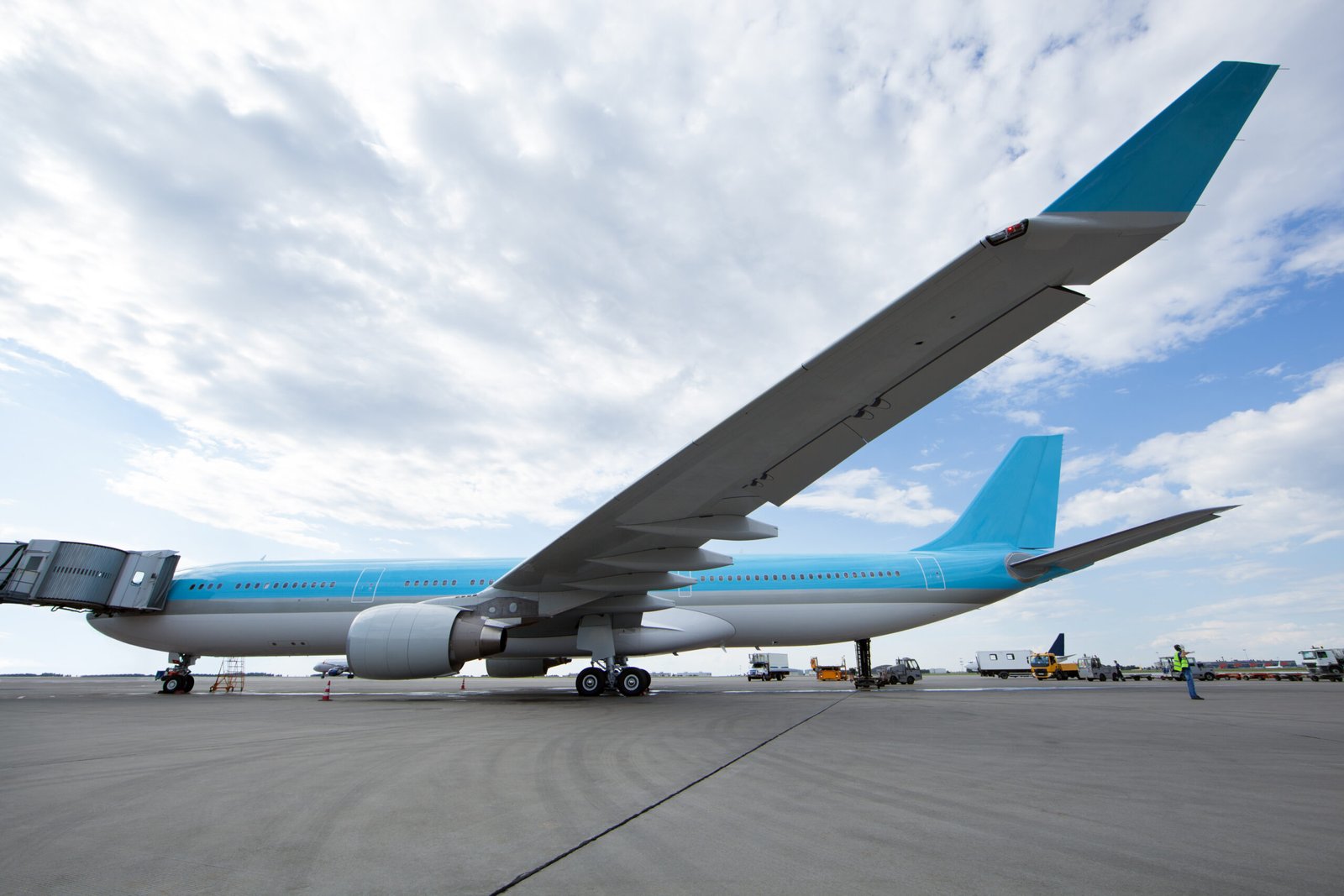Aviation Schools
From Runway to Skyway: The Evolution of Modern Air Travel
The world of aviation has undergone a remarkable transformation over the years, evolving from rudimentary experiments with gliders to sophisticated jets that crisscross the globe. As air travel becomes increasingly accessible and essential, the education surrounding it has also expanded significantly. This post will explore various types of aviation schools, highlight some popular aviation blogs and websites, and discuss FAA-approved flight schools, simulators, and their impact on aspiring aviators.

### Types of Aviation Courses
Modern aviation schools offer a plethora of courses tailored to meet diverse interests in the field. You can find programs specializing in:
1. **Pilot Training**: These courses range from private pilot licenses to commercial certifications, allowing students to learn everything from basic flight maneuvers to complex navigation techniques.
2. **Aircraft Maintenance**: For those fascinated by the mechanics behind flight, courses in aircraft maintenance teach everything about airframe systems and engine repairs.
3. **Air Traffic Control**: This program prepares students for a career managing aircraft movements on the ground and in the sky, ensuring safety and efficiency.
4. **Aviation Management**: Business-minded individuals may pursue degrees focusing on airport operations, airline management, or logistics within the aviation sector.
5. **Flight Dispatching**: Aspiring dispatchers are trained in planning flight routes, weather analysis, and regulatory compliance necessary for safely guiding aircraft.
Each type of course opens doors to unique opportunities within this dynamic industry.
### Must-Visit Aviation Blogs & Websites
For those looking to stay informed or deepen their knowledge about aviation trends and news, several excellent blogs and websites serve as invaluable resources:
**AirlineReporter.com**: A blog dedicated to covering airline products, reviews, and industry news with an engaging storytelling style.
**FlyingMagazine.com**: This site offers articles on flying techniques, gear reviews, safety tips, and personal flying experiences.
**AvGeekery.com**: Perfect for enthusiasts who love all things related to airplanes; it provides insights into aviation history along with current events.
**FlightAware.com**: A real-time tracking website that allows users to monitor flights globally while also providing historical data.
**AOPA.org (Aircraft Owners and Pilots Association)**: A comprehensive resource not only for pilots but also for anyone interested in general aviation advocacy.
Social media channels like Twitter and Instagram have become vital platforms for sharing quick updates; some popular handles include @FlightGlobal (for global aviation news) or @AvGeeksUnited (a community-driven account celebrating aviation culture).
### FAA Flight Schools & Simulators
When it comes to training as a pilot or technician in the United States, FAA-approved flight schools stand at the forefront. These institutions adhere strictly to federal regulations ensuring quality education. Notable examples include:
**Embry-Riddle Aeronautical University**: Renowned worldwide for its rigorous curriculum across various aeronautical fields.
**Purdue University Aviation Technology Program**: Offering both undergraduate degrees and hands-on flight training that integrates academic theory with practical experience.
**ATP Flight School**: Known for its accelerated programs designed specifically for those aiming quickly towards professional pilot careers.
Additionally, simulators play an integral role in modern training environments. Advanced simulation technology replicates real-world flying experiences without ever leaving the ground—making them indispensable tools for practicing emergency procedures or honing specific skills under controlled conditions.
As we look toward the future of air travel—a landscape painted with innovation—education remains pivotal in shaping tomorrow’s aviators. Whether you’re passionate about piloting planes or managing airport operations just remember that every great journey starts somewhere—often right from your local runway!
Flight Secrets: Inside the Life of an Airline Pilot
Ever gazed up at a soaring aircraft and wondered what it takes to be the one in command? The life of an airline pilot is a blend of exhilaration, responsibility, and continuous learning. However, before donning those aviator sunglasses and striding into the cockpit, aspiring pilots must navigate through an array of aviation schools, training programs, and resources that provide the foundation for their careers.

## Aviation Schools and Courses
Aviation education is not a one-size-fits-all endeavor; it varies significantly depending on individual goals. Here’s a breakdown of some popular types of courses offered:
1. **Private Pilot License (PPL)**: This fundamental course introduces flying basics. Ideal for hobbyists or those wanting to fly small aircraft.
2. **Commercial Pilot License (CPL)**: Once you’ve mastered your PPL, this course prepares you for a professional career in aviation, allowing you to get paid for your flying skills.
3. **Instrument Rating**: Essential for flying in various weather conditions, this training focuses on navigation using instruments rather than visual cues.
4. **Flight Instructor Certificate**: After gaining experience, many pilots choose to instruct others—this certification allows you to teach aspiring pilots.
5. **Airline Transport Pilot (ATP)**: The pinnacle of pilot training, ATP certification opens doors to airline jobs and requires extensive flying hours along with rigorous testing.
Each institution offers unique programs tailored to different needs; hence research is crucial when selecting an aviation school that aligns with your aspirations.
## Aviation Resources Online
In today’s digital age, connecting with fellow aviation enthusiasts or experts has never been easier! Here’s a curated list of engaging blogs, websites, and social media platforms dedicated to aviation:
**Airliner Cafe**: A vibrant forum where aviation lovers discuss everything from aircraft design to flight experiences.
**The Points Guy**: A blog focused on maximizing travel rewards—perfect for pilots looking to make the most out of their layovers!
**JetWhine**: A mix of opinions and news about current trends in aviation—the perfect resource for keeping informed on industry changes.
**Aviation Week Network**: Comprehensive coverage on aerospace technology and defense—a go-to site for industry professionals seeking cutting-edge information.
**Instagram & Twitter Accounts** like @PilotLife and @AviationGeeks offer daily doses of stunning aerial photography alongside insights from seasoned pilots.
These resources foster community engagement while providing invaluable knowledge about the intricacies of flying.
## FAA Flight Schools & Simulators
The Federal Aviation Administration (FAA) plays a vital role in certifying flight schools across the United States. When choosing an FAA-approved school, look for institutions that utilize advanced simulators along with real-world flight experience. These facilities provide immersive environments that replicate actual cockpit scenarios—an essential tool for honing skills without leaving the ground!
A few notable FAA-certified flight schools include:
**Embry-Riddle Aeronautical University**: Renowned globally for its aviation programs.
**Purdue University Aviation Technology Program**: Offers a comprehensive curriculum complemented by state-of-the-art simulators.
**Florida Institute of Technology**: Known for its hands-on approach combining academic rigor with practical application through simulations.
In conclusion, embarking on the journey towards becoming an airline pilot involves much more than just mastering takeoffs and landings—it’s about dedication to learning within a dynamic field filled with opportunities. With numerous courses available at various institutions alongside online resources paving your way forward, taking off into this exhilarating career has never been more accessible! So buckle up; adventure awaits!
Soaring High: The Future of Aviation Technology
As we glide into a new era of aviation, the horizon is rich with opportunities for aspiring pilots and aviation professionals. The landscape of aviation education is evolving, offering diverse paths tailored to various interests and career aspirations. Whether you are captivated by the mechanics of flight or the intricacies of air traffic control, there’s an educational track designed just for you.
Aviation schools have diversified their curriculums to encompass a broad spectrum of courses. For those aiming to become pilots, traditional flight training programs remain a staple; however, many institutions now offer specialized tracks including commercial pilot training, instrument ratings, and multi-engine certifications. Other courses delve into the technical aspects—aircraft maintenance programs provide students with hands-on experience in maintaining and repairing aircraft systems.

For individuals drawn to the business side of aviation, management courses are essential. These programs cover everything from airport operations to airline management strategies. Additionally, flight dispatchers can find dedicated training that prepares them for critical roles in ensuring safe and efficient flights. With the rise of drone technology, schools also offer drone pilot certifications—a reflection of how rapidly this sector is expanding.
In today’s digital age, staying informed about innovations in aviation technology is crucial. A wealth of resources exists online for enthusiasts and professionals alike. Some notable blogs include “AirlineReporter,” which covers industry news with a focus on airlines’ operations and passenger experiences, as well as “The Points Guy,” which provides insights into travel rewards related to flying. Websites like “FlightAware” offer real-time tracking information on flights around the globe while forums such as “PPRuNe” (Professional Pilots Rumour Network) facilitate discussions among aviation professionals.
Social media has also emerged as a vital platform for connecting with fellow aviators and staying updated on trends. Twitter accounts like @AvGeekery celebrate all things aviation through stunning imagery and engaging content while Instagram pages such as @FlyingtheSkies showcase breathtaking aerial views that inspire wanderlust. LinkedIn groups focused on aerospace careers create networking opportunities that can be invaluable in furthering one’s career.
If you’re considering pursuing your dreams within this thrilling field, FAA-approved flight schools are your launching pad. These institutions adhere strictly to federal regulations ensuring high-quality training standards across the board. Schools like Embry-Riddle Aeronautical University not only provide robust pilot training but also boast programs in aeronautics engineering and air traffic management.
For those who may hesitate due to time constraints or budget considerations, simulators present an excellent alternative for immersive learning experiences without leaving the ground. Flight simulator platforms range from sophisticated setups used by commercial pilots to more accessible options available at local flight schools or even home versions catering to hobbyists eager for realistic flying experiences.
With advancements in technology shaping every aspect of our lives—including how we travel—the future of aviation promises exciting innovations that will redefine our skies. As electric aircraft take center stage alongside sustainable fuels, educational institutions continue adapting their offerings to prepare students for these changes.
Whether you’re embarking on your journey through an aviation school or simply seeking knowledge through online platforms and communities, remember that every moment spent learning brings you closer to soaring high above those clouds! Embrace this dynamic world where passion meets technology—your adventure awaits!
High-Flying Careers: Navigating Your Path in the Aviation Industry
The aviation industry, with its boundless opportunities and exhilarating prospects, is a realm where dreams take flight. For those yearning to soar through the skies, understanding the educational pathways and resources available is crucial. This post will guide you through various types of aviation schools, essential blogs and websites for insights, as well as information on FAA-approved flight training programs.
### Types of Aviation Courses
When it comes to pursuing a career in aviation, a myriad of specialized courses awaits aspiring aviators. Here’s a breakdown of some common types:
1. **Pilot Training Programs**: These are tailored for those aiming to become professional pilots. They encompass private pilot licenses (PPL), instrument ratings (IR), commercial pilot licenses (CPL), and airline transport pilot licenses (ATPL). Many schools offer comprehensive packages that combine ground school with in-flight training.
2. **Aviation Management Degrees**: For individuals interested in the business side of flying, aviation management programs provide critical knowledge about airport operations, air traffic control systems, and airline management practices. These degrees often blend practical experiences with theoretical frameworks.
3. **Aircraft Maintenance Programs**: These courses train students in maintaining and repairing aircraft systems and structures. Graduates usually pursue certification from the Federal Aviation Administration (FAA) to work as certified maintenance technicians.
4. **Aerospace Engineering**: For those fascinated by the design and development aspects of aircraft, aerospace engineering offers an advanced understanding of aerodynamics, propulsion systems, materials science, and structural integrity.
5. **Flight Attendant Training**: This program equips future cabin crew members with essential skills such as safety protocols, customer service techniques, and emergency response procedures—crucial for ensuring passenger comfort during flights.

6. **Simulated Flight Training**: Many training institutions now incorporate advanced simulators into their curriculum. These provide realistic environments where students can practice maneuvers without leaving the ground.
### Valuable Resources for Aspiring Aviators
To stay updated with industry trends or seek guidance during your journey into aviation, numerous blogs and websites serve as invaluable resources:
**Airline Pilot Central**: A hub for pilots featuring forums discussing airlines hiring pilots and recent job postings.
**Flying Magazine**: A long-standing publication covering everything from flying tips to gear reviews.
**Plane & Pilot Magazine**: Focuses on pilot stories along with gear recommendations.
**The Points Guy**: Great for travelers wanting insights into maximizing travel rewards related to flights.
Social media platforms also have thriving communities devoted to aviation:
Join Facebook groups like “Aspiring Pilots” or “Aviation Enthusiasts.”
Follow Twitter accounts such as @AeroNews or @PilotNetwork to get real-time updates.
LinkedIn can be useful too! Connecting with professionals in the field can open up networking opportunities that may lead to internships or job placements down the line.
### FAA Flight Schools & Simulators
If you’re ready to embark on your flight training journey, look no further than FAA-approved flight schools across the country. These institutions adhere strictly to federal safety regulations while providing high-quality education aimed at producing proficient pilots.
Flight schools typically offer a combination of classroom instruction alongside practical experience using sophisticated flight simulators—replicating real-world flying conditions without stepping outside! Popular simulator brands like Redbird or Frasca are commonly found in many training centers.

In conclusion, whether you’re eyeing a cockpit seat or an office managing air traffic logistics, embarking on an aviation career requires thorough research into educational pathways along with consistent engagement within industry networks. The sky’s not just the limit; it’s your new beginning!
From Biplanes to Drones: The Evolution of Aviation Technology
The realm of aviation has undergone a breathtaking transformation since the days when biplanes ruled the skies. As we soar into a new age defined by precision, efficiency, and innovation, it’s fascinating to explore how aviation technology has evolved and what it means for future generations. This journey isn’t just about the machines; it’s also about the education that shapes future aviators and enthusiasts.
### Aviation Schools: A Diverse Learning Landscape
Today’s aviation schools offer an impressive array of courses tailored to meet diverse interests within the field. Whether you’re dreaming of becoming a pilot, air traffic controller, or aerospace engineer, there’s a specialized program waiting for you.
1. **Pilot Training Programs**: These courses cover everything from private pilot licensing to advanced certifications like instrument ratings or commercial licenses. Aspiring pilots can choose between in-person training at flight schools or online theoretical courses.
2. **Aeronautical Engineering**: This track focuses on designing and constructing aircraft, including studying aerodynamics, materials science, and propulsion systems. Universities with strong engineering programs often provide hands-on experience with simulations and lab work.
3. **Air Traffic Control (ATC)**: ATC programs prepare students for careers managing air traffic flow in increasingly busy skies. Courses typically include simulation training that mimics real-life scenarios.
4. **Aviation Management**: For those interested in the business side of aviation—such as airport management or airline operations—aviation management programs offer insights into logistics, finance, and regulatory compliance.
5. **Drone Technology Courses**: With drones revolutionizing industries from agriculture to delivery services, specialized courses are emerging that focus on unmanned aerial systems (UAS) operations, regulations, and application development.
### Dive Deeper with Online Resources
As you immerse yourself in aviation studies or simply seek to stay updated on trends and technologies shaping this dynamic field, several blogs and websites are pure gold:
**AirlineReporter.com**: Delve into airline news with a focus on travel experiences.
**FlyingMagazine.com**: A comprehensive source for articles on flight safety tips and aircraft reviews.
**TheAirCurrent.com**: An insightful blog covering aviation business issues and market analysis.
**AviationWeek.com**: Offers industry professionals critical news regarding aerospace technologies.
Social media platforms also play an essential role in connecting enthusiasts:
Follow #AvGeek on Twitter for tweets from fellow aviation lovers.
Join Facebook groups dedicated to specific aircraft types or flying communities.
Check out Instagram accounts showcasing stunning aerial photography—#DronesDaily is particularly popular among drone aficionados.
### Flight Schools & Simulators
When it comes down to practical training experiences, FAA-certified flight schools pave the way for aspiring pilots across the United States. These institutions adhere strictly to Federal Aviation Administration (FAA) guidelines ensuring quality instruction:
1. **Local Flight Schools**: Often affiliated with regional airports, these schools typically have fleets of small aircraft alongside experienced instructors ready to guide your first flights.
2. **University Programs**: Many colleges now offer Bachelor’s degrees in Aviation Science coupled with extensive flight training opportunities through their own FAA-approved flight schools.
3. **Simulator Training Centers**: Advanced simulators replicate cockpit environments providing invaluable practice without leaving the ground! Environments range from general aviation planes to complex commercial jets.
In conclusion, as we reflect on our journey from biplanes buzzing through open skies to sophisticated drones navigating urban landscapes autonomously, it’s evident that education will remain foundational in this ongoing evolution of aviation technology. For anyone eager to take part in shaping tomorrow’s skies—now is undeniably an exciting time!





